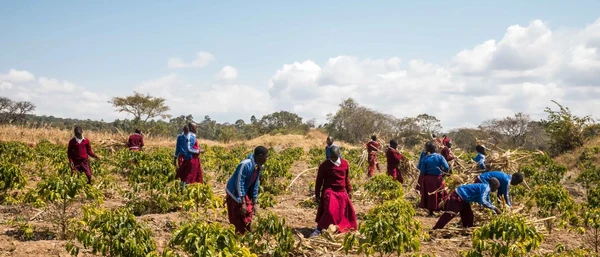
The Tchibo coffee country programme (8)
The next stop on our coffee journey is just around the corner. Today's destination: Tanzania. Tanzania as a coffee country will not be new to you. Our Joint Forces projects, the Tanzania Coffee Clubs, the school coffee "Kahawa Skuli" ... we have already reported to you several times from this important coffee country. It goes without saying that Tanzania is also part of our coffee programme!
Come with us to Tanzania!
So let's travel to East Africa. The biggest country-specific challenges there: climate change, of course. But another problem: gender inclusion. Involving women in projects is a particular challenge here. We therefore need to focus even more on integrating and involving all genders. The Coffee Club trainers should also be trained for this. It's about promoting young talent, imparting knowledge and training to increase productivity and quality.
But first things first... We are looking at the region around Mbeya and Mbozi. Our project goals there: strengthening the next generation of coffee farmers, increasing productivity and quality by enriching knowledge, expertise and knowledge transfer on sustainable coffee cultivation.
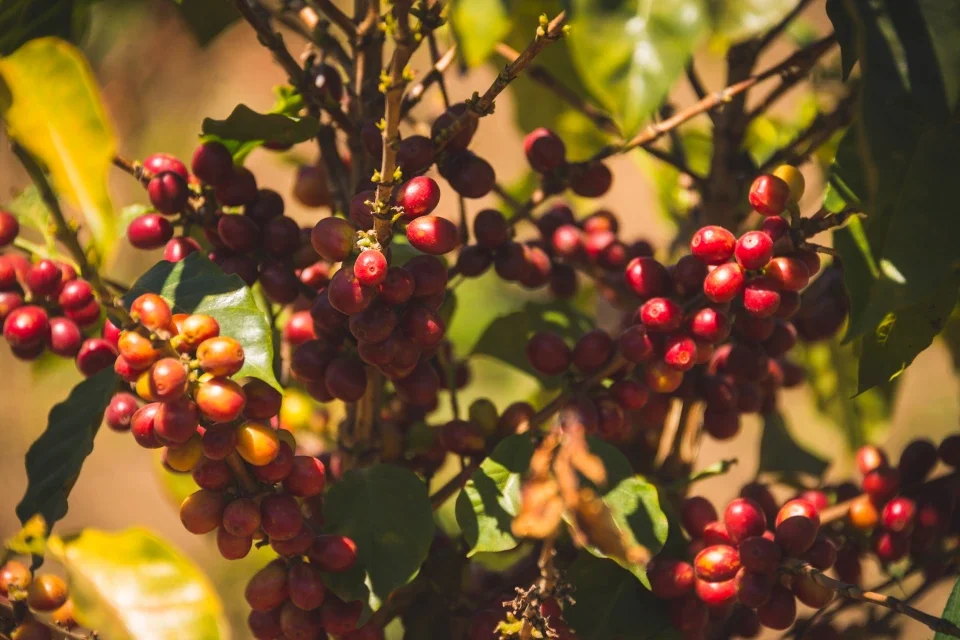
Our partner: City Coffee
We have big plans... how can we do it? First of all: we can't do it alone! Our local partner is helping us: City Coffee. City Coffee Limited was founded in 1993 as a coffee exporter and is part of the Neumann Kaffee Gruppe (NKG). The company aims to provide low-threshold access to high-quality education in Tanzania in order to reduce school drop-out rates, empower communities to invest in the future with innovative solutions and approaches and make agriculture and coffee production in Tanzania more lucrative.
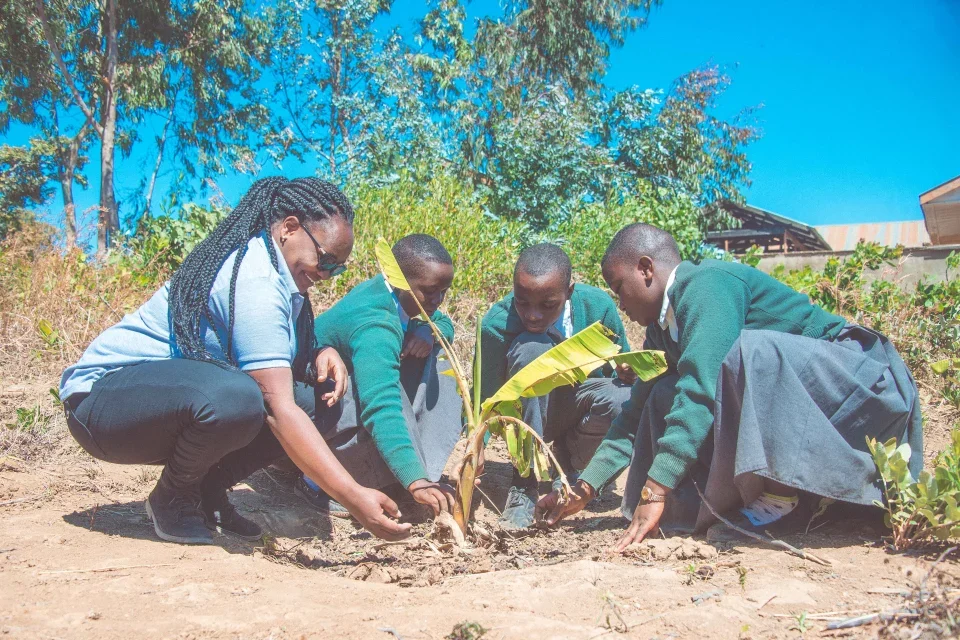
The „Coffee Clubs“
In order to promote young farmers and strengthen their knowledge, we have launched the Coffee Clubs in collaboration with City Coffee. These are school clubs that take place at seven schools in Mbeya and Mbozi. The pupils learn the basics of coffee cultivation. Coffee Club members can also take part in other activities, such as a visit to the Tanzanian Coffee Institute. The teaching content in the schools ranges from coffee cultivation to the successful sale of coffee. Various modules deal with the recognition of plant diseases, fertiliser skills and the appropriate use of water. In addition, well-founded information on correct pruning and high-yield harvesting methods is passed on. The training courses are not only intended to provide ecological content on the cultivation and preservation of coffee plants, but also to equip participants with the skills they need to run a successful farm. Against this backdrop, important aspects such as occupational health and safety and management skills are also addressed.
The training courses often lead to increases in productivity and quality - an important motivating factor for the pupils. As part of the project, the parents make part of their farm available to the young people, where they can initially apply their knowledge - ideally, they will be able to take it over in the future and thus ensure the availability of coffee in Tanzania. The schools have also made land available for the coffee clubs so that pupils can gain experience there and then apply the knowledge they have learnt at home. Win-win: this enables the schools to generate additional income, which in turn benefits the pupils.
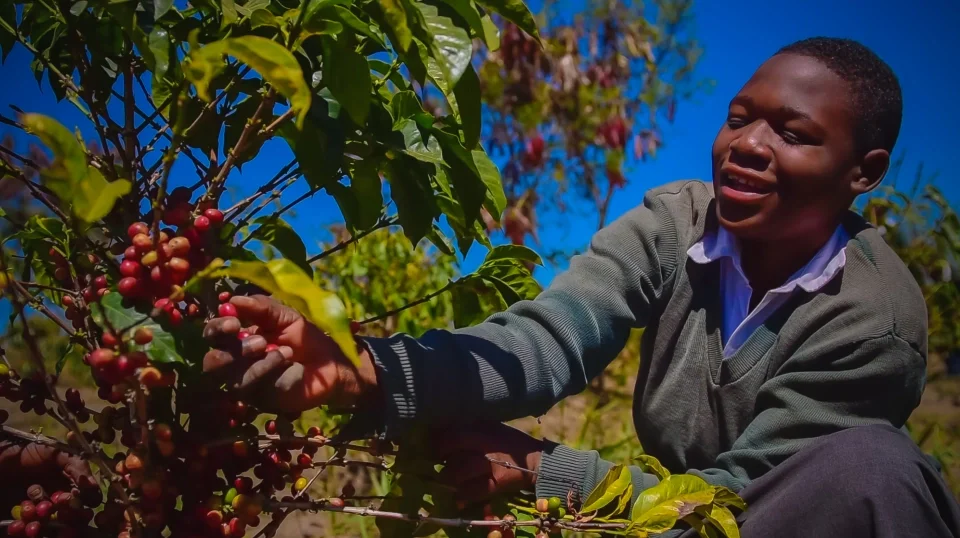
About coffee plants and fruit trees...
Between October 2020 and September 2022, an additional project was created as part of the Coffee Clubs. In total, we planted over 30,000 coffee plants and over 8,400 fruit trees during this period - from avocados and bananas to mangoes and papayas. Almost 5,000 of the fruit trees were planted at the seven schools, while a total of 347 Coffee Club participants took the rest home with them. On the one hand, this helps to improve the nutritional situation both in the schools and for the families at home, while on the other hand, the farmers' families have an additional source of income through possible sales. The diversification of the fields also has a positive impact on soil health.
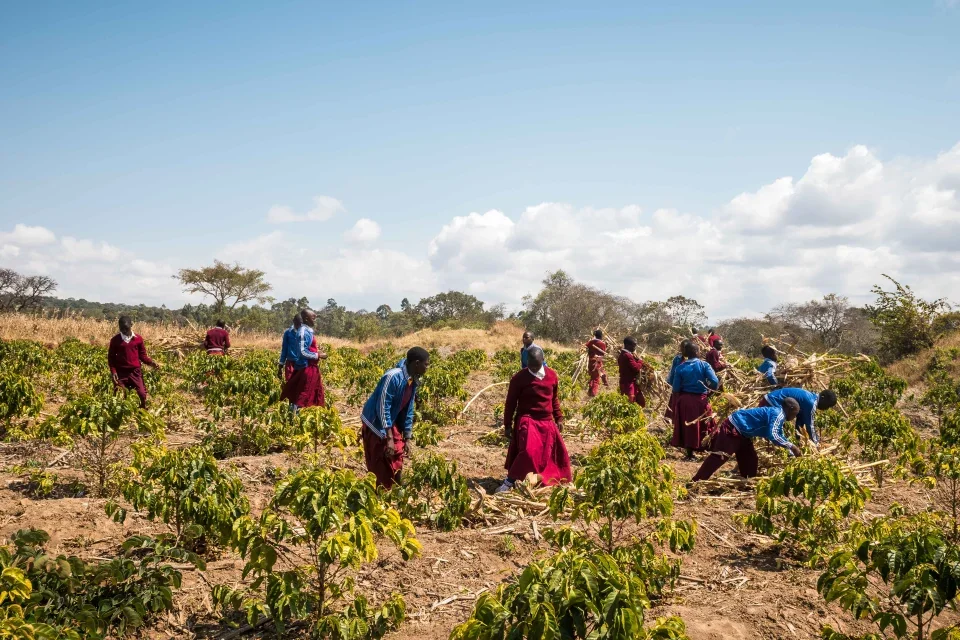
Successes
Coffee Clubs were established in seven Tanzanian schools, with a total of 1094 pupils taking part. Of these, 460 are graduates and the remaining 634 are current pupils. The positive influence of the coffee clubs is also evident after graduation - 65% of the graduates (303 students) continue to work in coffee cultivation. The coffee clubs have great potential: the pupils learn how to handle the plants and fertilisers correctly and bring their knowledge home with them, where their parents in turn learn from their children. So the whole family benefits indirectly.
The Coffee Club concept is attracting interest and we are in regular contact with local institutions and organisations on the subject. The project is even being supported by the Austrian Development Agency for the next three years. We are receiving external funding, which has enabled us to expand the project to include more pupils and to set up an internship programme for graduates and cooperative members. This internship programme will teach more about "farm as business", selling coffee at auctions and cupping, i.e. tasting coffee. We are very pleased about this co-operation.
„The special thing about this project is that young people learn how to grow coffee using the latest methods and take what they have learnt home to their own farm. We have also introduced an internship programme in which a small number of the participants learn how to detect defects in the coffee cherry and sell the green coffee at auctions. This gives a more holistic picture and shows the value of coffee and their work in the field.“
